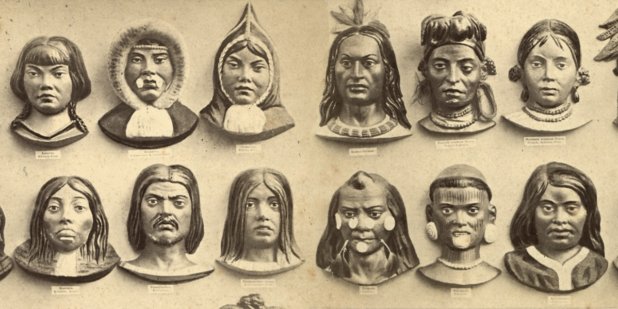- About
- Topics
- Picks
- Audio
- Story
- In-Depth
- Opinion
- News
- Donate
- Signup for our newsletterOur Editors' Best Picks.Send
Read, Debate: Engage.
The concept of race was originally a product of the natural sciences, which attempted to scientifically underpin the dominant European cliché of a superior white race in the 19th century. The origin of racism goes back to the colonization of Africa and South America. The enslavement of millions of Africans to exploit the resources of the conquered territories solidified the European’s pretension of a moral and civilizational superiority of the "white race".
In a short introductory video the Understanding Race project from the American Anthropological Association says race is a powerful idea and an enduring concept, invented by society. It has also fostered inequality and discrimination for centuries, as well as influencing how we relate to other human beings:
During the past 500-1000 years, racism on the part of Western powers toward non-Westerners has had a far more significant impact on history than any other form of racism (such as racism among Western groups or among Easterners, such as Asians, Africans, and others). The most notorious example of racism by the West has been slavery, particularly the enslavement of Africans in the so-called "New World" (slavery itself dates back thousands of years).
The origin of Racism
In the early 20th century, the "ethnographic World Maps" of German and French atlases showed a connection between the continents and the "races", who alleged lived there. According to these maps the human kind consists of races or populations which differ in certain hereditary characteristics from each other, and the most striking of which is the color of their skin.
In fact, contemporary scientists are not in agreement on whether race is a valid way to classify people.
What may seem to be significant "racial" differences to some people - skin color, hair, facial shape - are not of much scientific significance. In fact, genetic differences within a so-called race may be greater than those between races.
The French-German broadcaster ARTE summerized the history of racism in a slide show:
"Racism has always been both an instrument of discrimination and a tool of exploitation. But it manifests itself as a cultural phenomenon, susceptible to cultural solutions, such as multicultural education and the promotion of ethnic identities.
Tackling the problem of cultural inequality, however, does not by itself redress the problem of economic inequality. Racism is conditioned by economic imperatives, but negotiated through culture: religion, literature, art, science and the media.
... Once, they demonised the blacks to justify slavery. Then they demonised the “coloureds” to justify colonialism. Today, they demonise asylum seekers to justify the ways of globalism. And, in the age of the media, of spin, demonisation sets out the parameters of popular culture within which such exclusion finds its own rationale — usually under the guise of xenophobia, the fear of strangers."
A. Sivanandan, The Guardian, August 17, 2001
